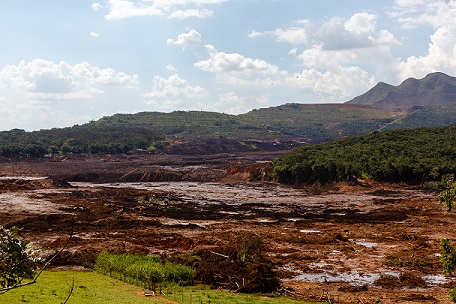
A judge in Brazil has ordered mining giant Vale to pay compensation for all damages caused by the collapse of the Brumadinho dam in January.
The collapse was Brazil’s worst industrial accident.
The judge did not set a figure for the compensation but said that the company was responsible for fixing all the damages including the economic effects.
At least 248 people were killed as a sea of mud engulfed a staff canteen, offices and nearby farms.
Twenty-two people are still missing following the collapse of the Feijão dam on 25 January.
Judge Elton Pupo Nogueira also said that $2.9bn (£2.3bn) of Vale’s assets frozen by courts should remain blocked. He said the funds should be used to make compensation payments to affected families and businesses.
Explaining why he had not specify an amount for Vale to pay out, he argued that technical and scientific criteria were not enough to quantify the effects of the collapse.
“The value [of the compensation] is not limited to the deaths resulting from the event, it also affects the environment on a local and regional level as well as the economic activity in the affected region.”
The judge said Vale had so far co-operated with the justice system and taken all the actions required from it following conciliation hearings.
He also pointed out that Vale’s defence team had not denied responsibility for the damage caused by the collapse of the dam.
Mounting pressure
In a statement, Vale said it had a “total commitment to fair and quick reparations for the damages caused to families, community infrastructure and the environment”.
While Judge Nogueira’s ruling on Tuesday is the first conviction for Vale over dam collapse, it is unlikely to be the end of its legal troubles.
Last week, the Brazilian Senate urged prosecutors to bring charges ranging from environmental damage to involuntary manslaughter against top managers at Vale at the time of the dam collapse.
Vale said that it disagreed with the Senate’s recommendation and insisted that senior company officials had not been aware of any “imminent risks” at the dam prior to its collapse.
While not legally binding, the Senate recommendation has further increased pressure on the mining giant.
There are also concerns that other dams may be at risk of collapse.
Source: bbc.co.uk






Be the first to comment